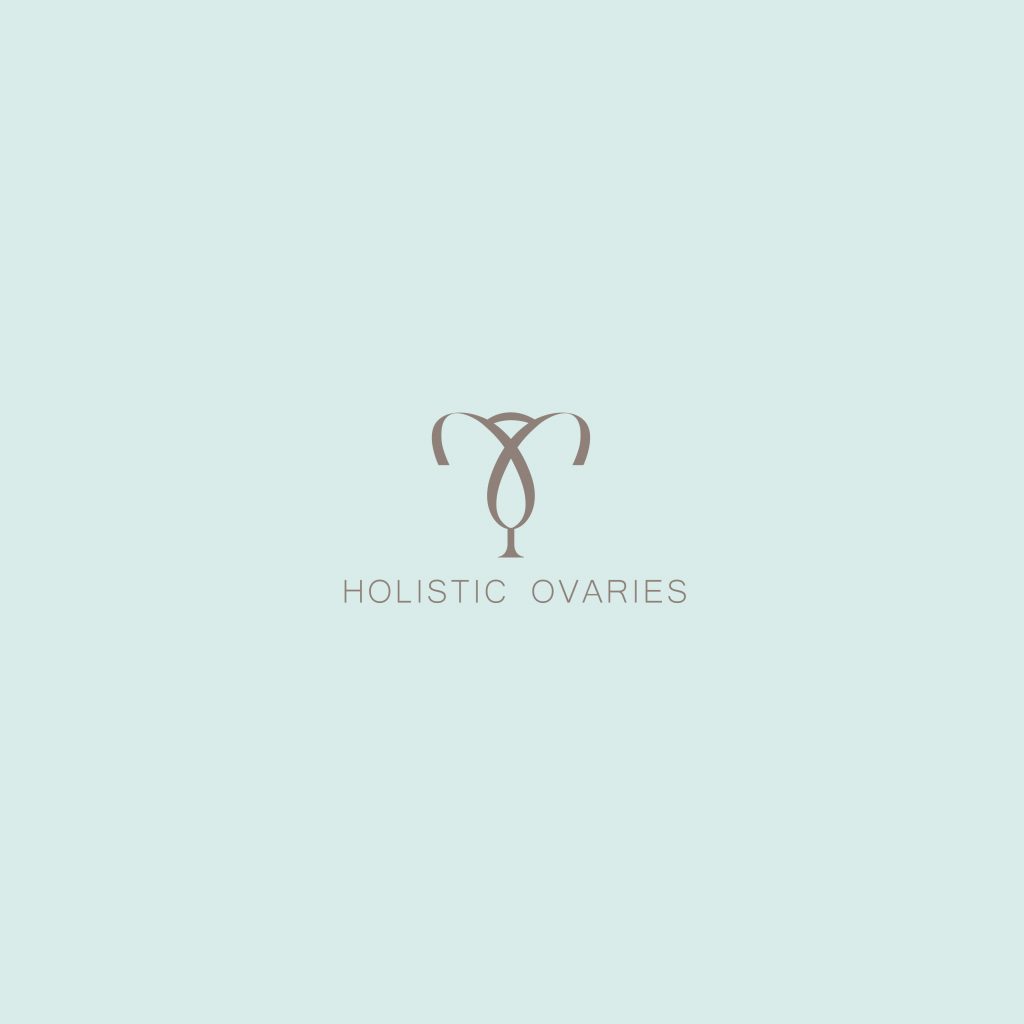Going off of birth control?
5 ways to prepare your body

Do you want to get off the oral contraceptive treatment? - Prepare your body first
Many women with PCOS at some point of their life will go on birth control treatment for their hormonal imbalances. Doctors most likely will prescribe the birth control to manage symptoms of polycystic ovary syndrome.
And yes, a contraceptive pill can be a useful, temporary solution that can help you to deal with uncomfortable PCOS symptoms, like acne, hair loss or hirsutism.
It is important though to remember that hormonal pills will not get rid of your PCOS. Focusing on the causes of hormonal imbalaces will be more beneficial in the long run.
I know that many of you at some point decide to say goodbye to hormonal pills. It might be because you have experienced negative side effects, maybe you want to try different treatments or maybe you decided to get pregnant.
No matter what is your reason to break up with the pill, you might be concerned that your previous symptoms of the hormonal imbalances will return when you stop taking the pill.
Unfortunately, it is likely the case. Withdrawing from the contraceptive pill is a huge shock for our bodies and our hormones will need time to balance.
Some of the symptoms after stopping the hormonal birth control includes:
- Increased androgen levels after stopping hormones. This can cause a range of negatively related symptoms, such as acne, oily skin and hair, and premenstrual syndrome (PMS).
- Amenorrhea is a syndrome that describes the absence of menstruation for six months or more after stopping contraception. Unfortunately, it occurs extremely often due to the inhibition of normal hormonal mechanisms.
*If your period does not come after six months, it is worth checking that it is not due to a more serious cause of the hormonal imbalance, such as hypothalamic failure, PCOS, or any other problem.
Let’s see how you can prepare yourself physically and mentally for the changes that your body will go through after you stop the contraceptive pill.
1. COMPENSATE YOUR NUTRITION DEFICIENCY:
The research shows that using oral contraceptives affects our nutritional status. The change includes:
- elevation of triglycerides,
- decline in glucose tolerance,
- decrease of folate,
- decline levels of iron.
Oral contraceptives might also deprive your body of the key nutrients, in particular: Magnesium, B vitamins, Vitamin C, Zinc, and Tryptophan.
Why do minerals and vitamins matter? Let’s have a closer look:
MAGNESIUM:
- Women with a magnesium deficiency are 19 times more likely to have PCOS.
- One study demonstrated significant improvement in hirsutism in women with PCOS (12 weeks trial of magnesium supplementation 250 mg/day plus 400 mg/day vitamin E supplements).
- Another study emphasised that increasing magnesium intakes may assist in reducing insulin resistance and hyperandrogenemia in women with PCOS.
B VITAMINS:
- There are several types of B vitamins, but B6, B9 (folate) and B12 in particular play an important role in PCOS management.
- Research shows that folate and vitamin B12 treatment improved insulin resistance in patients with metabolic syndrome. (Insulin resistance, obesity, and elevated homocysteine were associated with lower serum vitamin B(12) concentrations in PCOS patients).
- One research on vitamin B6 showed significant reduction in mood imbalances, anxiety, and depression in women with PCOS.
VITAMIN C
- Vitamin C plays an important role in the regulation of the menstrual cycle and ovarian function – stimulates progesterone and oxytocin production, and high concentrations are present in the corpus luteum.
- Taking vitamin C just before ovulatory phase is likely to facilitate proper ovulation.
- One research study made on PCOS Wistar rats shown that Vitamin C plays a protective role against DHEA via its antioxidant and anti-apoptotic mechanisms (preventing cell damage). (Remember this study has been made on rats).
ZINC:
- Reduced levels of zinc in PCOS women are associated with decreased hormonal, lipid and glucose metabolism and elevated concentrations of oxidative stress biomarkers.
- 8 weeks (randomized double-blind, placebo-controlled trial) of using 50 mg/day elemental zinc had beneficial effects on alopecia and hirsutism in PCOS patients.
- Zinc supplementation seems to improve PCOS symptoms in women with insulin resistance.
Additionally, oral contraceptives change our gut microflora. So it’s worth supplementing with probiotics.
I always suggest doing blood tests first to check what vitamin deficiencies’ you might be facing before you start supplementation. If you decide to take vitamins in minerals, always focus on high quality one.
Try to take the supplements suggested above 2-3 months before stopping oral contraceptives. It may help you to manage symptoms after stopping the pills. However, try to implement food that is rich in these minerals and vitamins.
Also remember that there is no one, easy pill or supplement to fix such a complex mechanism of hormonal functioning.
Vitamins, minerals, herbs, tonics should always be a complement to a well-balanced diet and a healthy lifestyle.
2. ADD FOOD THAT WILL SUPPORT YOUR HORMONES
Your diet plays a huge role in your hormonal health. But I don’t want you to be dieting to lose weight. I want you to see diet as a way to nourish and support your body.
Instead of focusing on what you can’t eat, focus on things that you can add to your diet to balance your hormones.
There are really so many delicious and nutritious foods to consider. Below I will give you examples of food that are high in nutrients and vitamins your body might need after long use of contraceptive pills.
MAGNESIUM:
Like dark chocolate (minimum 70%), avocado, cashews, almonds, brazilian nuts, lentils, beans, chickpeas, tofu, flax seeds, pumpkin seeds, chia seeds, mustard seeds, wild caught fatty fish (salmon, mackerel), kale, spinach, green cabbage and turnips.
B VITAMINS:
Salmon, trout fish, spinach, cabbage, turnips, romaine lettuce, eggs, oysters, clams, shrimps, black beans, chickpeas, edamame, green peas, nutritional yeast, sunflower seeds.
VITAMIN C:
Acerola cherries, rosehip tea, yellow pepper, parsley, thyme, spinach, kale, black currant, kiwi, broccoli, brussels sprouts, lemons, strawberries, oranges.
ZINC:
Oysters, sprouts, hemp seeds, pumpkin seeds, cashews, almonds, eggs, quinoa, rice and whole grain oats, kale.
TRYPTOPHAN:
Pumpkin seeds, tuna, crab, oats, eggs, spirulina, raw cocoa, bananas.
PROBIOTICS:
Sauerkraut, cucumbers, and other pickles, tempeh, kimchi, miso soup, kambucha.
3. MOVE YOUR BODY
I deliberately called this point “MOVE YOUR BODY” rather than “EXERCISE”.
Because you don’t necessarily have to go to the gym or sign up for any CrossFit classes to get benefits of moving. Of course if it is something that is calling you – go for it girl! Because, what matters is that you move the way you like it! Whatever it will be a walk, gym session or dancing in your living room.
Just don’t go into extremes of overexercising or completely becoming a couch potato. Because when it comes to hormonal balance, exercise can be a tremendous balance promoter OR it can upset your hormonal equilibrium.
We are all very different, so it is important to listen to your body and move according to its needs (not too little, not too much).
4. STOP FOR A MINUTE AND MEDITATE
I know you might be thinking that I am not telling you anything new and you may be saying “Who even has time to meditate or to practice mindfulness?”
But believe me, a few minutes of sitting still and observing your body, thoughts and feelings can have such a big impact on your hormonal balance.
- Meditation has been shown to lower cortisol by normalizing blood pressure and heart rate, in other words, meditation shuts down “fight or flight” responses.
- Meditation also improves our serotonin levels – our happiness neurotransmitter, and the oxytocin that we release when we feel love and connected!
- It has also been shown to improve sleep quality by raising melatonin levels, improve focus and increase dopamine, and more importantly, affect sex hormones (by lowering cortisol) and improve libido.
You can just sit in silence for a few minutes or use a guided meditation. Try for one week and see what will happen.
5. Have a good night - Sleep well
I know another boring one. But don’t underestimate the power of sleep. Good quality, adequate sleep can help you regulate hormones in so many wonderful ways.
Sleep plays a major role in neuroendocrine function and glucose metabolism.
Sleep deprivation will result in metabolic and endocrine alterations, including decreased glucose tolerance, decreased insulin sensitivity, increased evening concentrations of cortisol, increased levels of ghrelin, decreased levels of leptin and increased hunger and appetite.
Create your own sleep hygiene and sleep routine that will work for you.
PCOS and stopping oral contraceptive
Hormonal pills can minimize your PCOS symptoms. But it has to be taken with the awareness that it won’t heal your PCOS or it won’t make your PCOS go away forever.
Discontinuing hormonal pills should be your personal decision.
You can prepare your body for the shock of stopping the hormones with behavioural modifications. I know that implementing changes to your life might be challenging.
Remember to take small steps at the time

I would like to know your experience with oral contraceptive treatment for PCOS. You can send me a message here. Sharing your story helps me to understand your needs, your struggles and your goals.
So I can write posts that will be helpful for you and other women with polycystic ovarian syndrome.
Yours Agnese

References:
Cutler, D. A., Pride, S. M., & Cheung, A. P. (2019). Low intakes of dietary fiber and magnesium are associated with insulin resistance and hyperandrogenism in polycystic ovary syndrome: A cohort study. Food Science & Nutrition, 7(4), 1426–1437. https://doi.org/10.1002/fsn3.977
Iervolino, M., Lepore, E., Forte, G., Laganà, A. S., Buzzaccarini, G., & Unfer, V. (2021). Natural molecules in the management of polycystic ovary syndrome (PCOS): An analytical review. Nutrients, 13(5), 1677. https://doi.org/10.3390/nu13051677
Kaya, C., Cengiz, S. D., & Satıroğlu, H. (2009). Obesity and insulin resistance associated with lower plasma vitamin B12 in PCOS. Reproductive BioMedicine Online, 19(5), 721–726. https://doi.org/10.1016/j.rbmo.2009.06.005
Palmery, M., Saraceno, A., Carlomagno, G., & Vaiarelli, A. (2013). Oral contraceptives and changes in nutritional requirements. European Review for Medical and Pharmacological Sciences.
Sharifi, F., Mazloomi, S., Hajihosseini, R., & Mazloomzadeh, S. (2011). Serum magnesium concentrations in polycystic ovary syndrome and its association with insulin resistance. Gynecological Endocrinology, 28(1), 7–11. https://doi.org/10.3109/09513590.2011.579663
Shokrpour, M., & Asemi, Z. (2018). The effects of magnesium and Vitamin E co-supplementation on hormonal status and biomarkers of inflammation and oxidative stress in women with polycystic ovary syndrome. Biological Trace Element Research, 191(1), 54–60. https://doi.org/10.1007/s12011-018-1602-9



